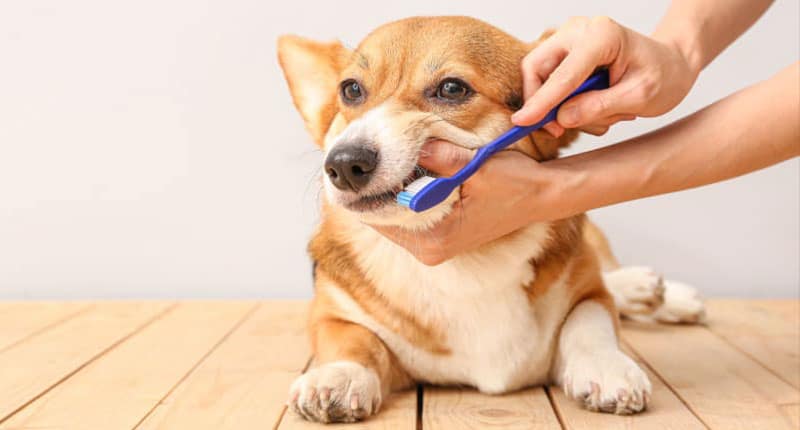
Taking care of a pet is a rewarding and fulfilling experience. Whether you have a dog, cat, or any other furry friend, it’s essential to provide them with the love, care, and attention they deserve. This article will guide you through the essential tips for pet care, covering various aspects of their well-being, from nutrition and grooming to veterinary care and training.
Understanding the needs of your pet
- Providing proper nutrition When it comes to pet care, nutrition plays a vital role in their overall health and well-being. Make sure to feed your pet a balanced diet that suits their specific needs. Consult with your veterinarian to determine the right type of food and feeding schedule for your pet. Provide fresh water at all times, and avoid feeding them harmful human foods.
- Regular exercise and playtime Pets, especially dogs, require regular exercise and playtime to stay physically and mentally stimulated. Take your dog for daily walks or engage in interactive play sessions. For cats, provide scratching posts, climbing structures, and interactive toys to keep them active and entertained.
- Ensuring a safe and comfortable environment Create a safe and comfortable living environment for your pet. Remove any potential hazards, secure toxic substances, and provide a cozy bed or resting area. Consider their comfort during different weather conditions and make necessary adjustments.
Grooming and hygiene
- Bathing and brushing Regular grooming is essential to keep your pet’s coat clean and healthy. Bathe them using pet-friendly shampoos and conditioners suitable for their fur type. Brushing their coat helps remove loose hair, prevents matting, and promotes good circulation.
- Nail trimming and dental care Trim your pet’s nails regularly to prevent overgrowth and discomfort. Dental care is equally important, so introduce toothbrushing early on and use pet-specific toothpaste to maintain their oral health.
- Preventing fleas and ticks Protect your pet from fleas and ticks by using appropriate preventive measures. Consult your veterinarian for recommendations on flea and tick control products and ensure regular application.
Veterinary care and vaccinations
- Regular check-ups and vaccinations Schedule regular veterinary check-ups to monitor your pet’s health and catch any potential issues early on. Vaccinations are crucial for preventing common diseases, so keep your pet’s vaccinations up to date.
- Identifying and treating common health issues Learn to recognize common health issues in your pet, such as signs of illness, allergies, or parasites. If you notice any concerning symptoms, consult your veterinarian for proper diagnosis and treatment.
- Spaying or neutering your pet Consider spaying or neutering your pet, as it offers numerous health benefits and helps control the pet population. Consult with your veterinarian to determine the appropriate time for this procedure.
Training and socialization
- Basic obedience training Teach your pet basic commands and obedience training. This helps establish a strong bond, enhances their behavior, and ensures their safety in various situations. Use positive reinforcement techniques to reward good behavior.
- Positive reinforcement Positive reinforcement, such as treats and praise, is an effective way to encourage desired behavior in pets. Reward them for good behavior and avoid punishment-based training methods.
- Socializing with other pets and people Expose your pet to different environments, people, and other animals to promote socialization. This helps them become well-adjusted and reduces the likelihood of behavior problems.
Creating a loving and enriching environment
- Providing toys and mental stimulation Enrich your pet’s environment by providing them with toys, puzzles, and interactive games. This helps keep their minds active and prevents boredom and destructive behavior.
- Spending quality time with your pet Make sure to spend quality time with your pet, offering love, attention, and companionship. Engage in activities that they enjoy and make them feel loved and valued.
Conclusion
Proper pet care involves understanding and meeting the diverse needs of your furry companion. By providing proper nutrition, grooming, veterinary care, training, and a loving environment, you can ensure your pet leads a healthy, happy, and fulfilling life.
FAQs
1. How often should I take my pet to the veterinarian for check-ups?
- It’s recommended to take your pet for regular check-ups at least once a year. However, older pets or those with specific health concerns might require more frequent visits. Consult with your veterinarian for a personalized schedule.
2. How can I prevent my pet from chewing on furniture and household items?
- To prevent unwanted chewing behavior, provide your pet with appropriate chew toys and regularly rotate them to keep their interest. Ensure they have enough physical and mental stimulation to prevent boredom.
3. Are there any specific dietary requirements for different pet breeds?
- Yes, different pet breeds may have specific dietary requirements based on their size, age, and health conditions. Consult with your veterinarian to determine the most suitable diet for your pet’s breed and individual needs.
4. How do I introduce a new pet to my existing pets?
- Introduce new pets gradually and in controlled environments. Keep them separated initially and gradually allow supervised interactions. Provide positive reinforcement and ensure each pet has their own space for retreat.
5. Can I train an older pet, or is it only effective with younger ones?
- Training is not limited to younger pets; older pets can also learn new behaviors. It may require more patience and consistency, but with positive reinforcement and appropriate training techniques, older pets can respond well.
